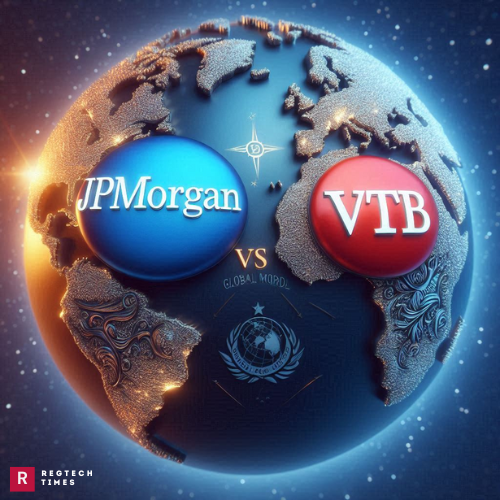The continuing legal battle between JPMorgan Chase and VTB Bank serves as a prime example of how intricately financial considerations, geopolitical unrest, and international sanctions intersect. US financial firms are caught up in a delicate balancing act with the ongoing unrest between Russia and Ukraine. They have to negotiate the challenges of following Western sanctions and maintaining international economic norms. Their precarious situation, caught between geopolitical demands and commercial imperatives, is highlighted by this delicate tango. Banks like JPMorgan are faced with the difficult task of upholding sanctions compliance while protecting their reputation globally and operational integrity as long as tensions continue.
The Legal Clash
Notable progress was made when a Russian court decided in favor of VTB Bank, allowing it to reclaim $439.5 million that JPMorgan Chase had frozen following the invasion of Ukraine. This decision resulted from VTB’s lawsuit, which the bank had brought before an arbitration court in St. Petersburg. It demonstrated the bank’s efforts to recover money and concerns over JPMorgan’s exit from Russia. The move highlights VTB’s proactive approach to protecting its financial interests in the face of shifting geopolitical circumstances. It also reflects broader banking industry concerns about how foreign conflicts may affect cross-border transactions and regulatory compliance.
The Biden Administration’s Response
The Biden administration has employed a variety of strategies, such as trade restrictions, oil price controls, and sanctions, to offset Russia’s military might. The recent passage of a foreign aid package by President Biden gives American authorities the authority to locate and seize Russian assets inside US borders. In addition, current diplomatic initiatives aim to mobilize allies in Europe to release Russian state property, directing assistance toward Ukraine. Together, these actions highlight a determined attempt to reduce Russian influence while strengthening Ukraine’s resilience, demonstrating a coordinated international reaction to the current conflict and its wider ramifications for geopolitical balance and regional stability.
JPMorgan’s Legal Defense
VTB’s legal wrangling in Russia prompted JPMorgan to file a case of its own in the Southern District of New York. By claiming that they are prohibited by U.S. law from releasing the funds to VTB, the American bank attempted to thwart VTB’s attempts to recover the frozen funds. Citing Russian courts’ historical preference for domestic lenders in comparable circumstances, JPMorgan accused VTB of violating their contract by pursuing remedies in Russian courts rather than American ones.
The Dilemma of Compliance
American banks, like JPMorgan, have a difficult time balancing the demands of global commercial interests with the restrictions of the West. As demonstrated by JPMorgan’s possible exposure to a loss of almost half a billion dollars in this particular example, compliance with penalties may result in significant financial losses. On the other hand, noncompliance might have negative legal effects and harm the bank’s reputation.
Implications for the Banking Sector
The outcome of VTB and JPMorgan’s legal dispute will have a big impact on the banking industry as a whole. In politically heated contexts, multinational banks have to carefully balance financial interests, legal requirements, and geopolitical considerations. The outcome of this case may establish guidelines for other conflicts involving financial transactions that span international borders and international sanctions in the future.
In summary, the legal dispute between JPMorgan Chase and VTB Bank illustrates the complex issues that global banks face in the context of geopolitical unrest. American financial firms walk a tightrope between regulatory requirements and economic goals as they manage compliance with international business rules and Western sanctions. The resolution of this conflict will have an effect on the parties directly involved as well as the larger field of international banking and sanctions compliance. Banks like JPMorgan must be alert when geopolitical factors change, striking a balance between the demands of a constantly shifting geopolitical situation and the intricacies of global banking.


